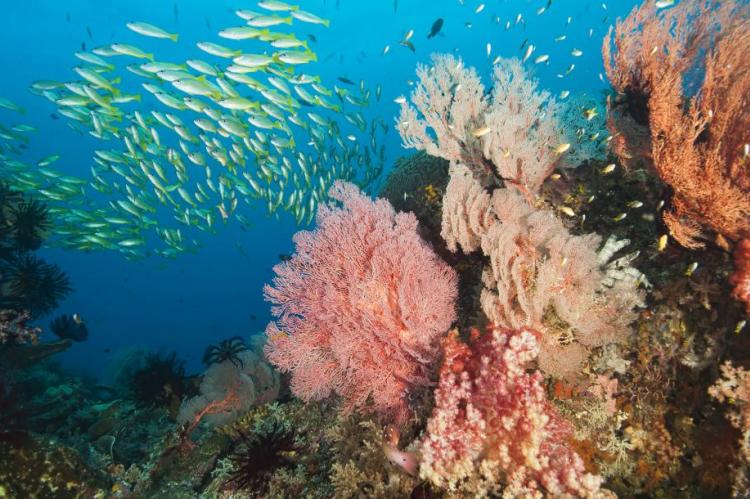Ocean acidification already slowing coral reef growth
Reefs could switch from calcification to dissolution within the century due to acidification
Coral reefs are particularly vulnerable to the ocean acidification process, because reef architecture is built by the accretion of calcium carbonate, called calcification, which becomes increasingly difficult as acid concentrations increase and the surrounding water's pH decreases.
In an experiment to manipulate the chemistry of seawater in the ocean, a team of researchers from University of Sydney brought the pH of a reef closer to what it would have been in pre-industrial times, based on estimates of atmospheric carbon dioxide from that era. They then measured the reef's calcification in response to this pH increase. They found calcification rates under these manipulated pre-industrial conditions were higher than today.
It is already happening
"Our work provides the first strong evidence from experiments on a natural ecosystem that ocean acidification is already causing reefs to grow more slowly than they did 100 years ago," the study lead Dr Rebecca Albright said. "Ocean acidification is already taking its toll on coral reef communities. This is no longer a fear for the future; it is the reality of today."
Increasing the alkalinity of ocean water around coral reefs has been proposed as a geoengineering measure to save shallow marine ecosystems. These results show this idea could be effective. However, the practicality of implementing such measures would be almost impossible at all but the smallest scales.


